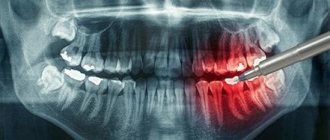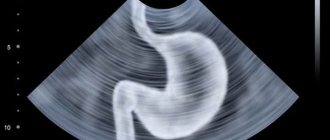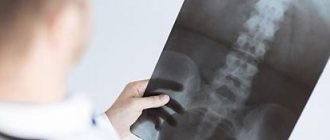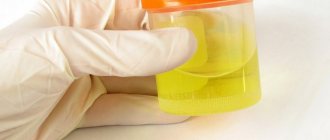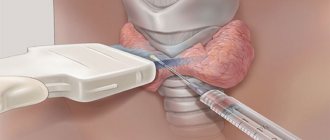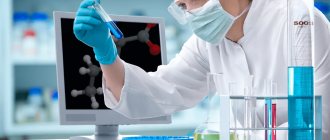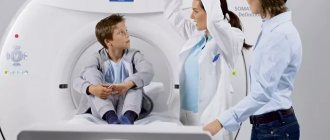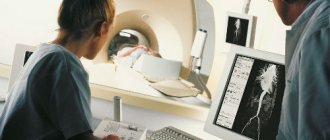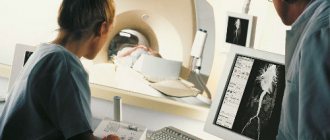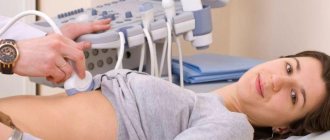Medicine for adults
Diagnostics
Analyzes (laboratory diagnostics)
All types of laboratory tests are performed.
You must pre-register by phone. For certain types of tests, the time or days for collecting biomaterial may be limited. Pre-registration allows you to clarify the possibility of collecting biomaterial for specific indicators.
Beginning of work
treatment rooms in all departments of the Medical
8:00 am
, all days of the week. You can take tests at any of the outpatient departments of the Medical Center, 7 days a week.
Readiness dates for tests taken during the main collection time:
- Clinical blood test, general urine test, Sulkovich test, urine test according to Nichiporenko, stool test for worms, enterobiasis, coprogram: on the day of collection after 21:00.
- Hospital complex (blood type, Rh factor, F-50, RW, hepatitis): on the day of collection after 21:00.
- Some markers of hepatitis, HIV: 3-7 days
- Blood coagulation tests, biochemical blood tests: 2-3 days
- Hormonal studies, PCR diagnostics, blood tumor markers: 3-5 days
(for some hormones the readiness time is 7-9 days) - Bacteriological (smears for flora, disgroup, blood, urine, milk cultures, stool for UFP): 5-7 days
- Histological and cytological studies: up to 7 days
- Blood tests for allergens, IgE, antibodies to Giardia, Toxocara, Ascaris: up to 10 days
- Determination of the concentration of total immunoglobulin E (IgE) using the mast cell degranulation method (MCD) - up to 30 working days
- Determination of specific allergens by mast cell degranulation (MCD) - up to 14 working days
- Antibodies to viruses (cytomegalovirus, Epstein-Barr, measles, mumps, herpes and others): up to 10 days
- Dysbacteriosis: 7-10 working days
- Sowing for mycoses (fungi): up to 28 days
(negative results when culturing urine for microflora can be issued within 24 hours from the moment the biomaterial arrives at the laboratory)
Important Notes
Material for research
children under 7 years of age: venous blood/capillary blood (for special indications)
children over 7 years old and adults: venous blood
Capillary blood collection for examination is carried out only for children under 7 years of age (for special indications)!
According to GOST R 53079.4-2008, indications for taking capillary blood are possible: in newborns, in patients with very small or hard-to-reach veins, with large-area burns, and severe obesity of the patient.
Ready times for tests taken in the evening (after the main time for taking tests):
- for analyzes with a same-day turnaround time, the results will be ready by 3:00 p.m. the next day;
- for analyzes with a long turnaround time (more than 1 day), the period is increased by 1 day.
The turnaround time for some tests may vary. Up-to-date information can be obtained by phone.
We ask that you bring biomaterials for analysis in sterile containers
. In outpatient departments, when registering for tests, these containers are issued by administrators. If you make an appointment by phone, you need to buy them at the pharmacy. This is especially important for analyzes in which biomaterial is inoculated (feces, urine, breast milk, ejaculate, saliva, etc.). The laboratory will not be able to accept material that is not brought in a special container, since the sterility of the container is necessary to obtain a reliable result.
Dear patients, please note!
Instructions for collecting hair to study microelement composition
References
- Alexandrova, E.N., Novikov, A.A., Nasonov, E.L. and others. Federal clinical recommendations “Laboratory diagnosis of rheumatic diseases”, 2014. - 129 p.
- Jolobe, O. How to interpret and pursue an abnormal complete blood cell count in adults, 2005. - Vol. 80(10). - P. 1389-90.
- McPhee, S., Papadakis, M. Current Medical Diagnosis and Treatment, 2009. - Vol. 83(2). - P. 109.
- Preparing for the study
- Contraindications and restrictions
HOW CAN YOU OBTAIN ANALYSIS RESULTS
The results of research (analysis) are information constituting the patient’s medical confidentiality and can only be issued:
- You personally
in any outpatient department (upon presentation of an identification document);
- By email.
To do this, you need to fill out a one-time application in person, in the presence of a representative of the medical center (administrator or nurse on call), indicating your email address. When ready, the results are automatically sent to the email specified in the application.If within the specified period by email. Test results have not been received by email, call us or send a request to the email address specified in the application. It must contain the patient’s full name, date of birth, and date of collection of used material.
- Your representative
, acting on the basis of a notarized power of attorney, including the right of access to medical confidentiality.
- The legal representative of a child under 15 years of age
(parents, guardians, trustees), upon presentation of documents confirming the identity of the representative and his right to represent the interests of the patient (passport where the child is registered or birth certificate, etc.).
Grandmothers, grandfathers, sisters, brothers, nannies and other close people, in accordance with current legislation, are not legal representatives.
From the age of 15, patients have the right to maintain medical confidentiality. In order for parents or other representatives to have access to medical information, the patient must complete a proxy statement in person.
- A representative of an incapacitated or partially capable Patient
upon presentation of the relevant document;
- Another person you authorize to receive your test results
. To do this, you must personally, in the presence of an employee of the medical center, write a statement indicating the authorized persons who have the right to receive your medical information.
Other persons, as well as representatives who do not have identification documents, will, unfortunately, be denied the results of research (analysis).
Other persons, as well as representatives who do not have identification documents, will, unfortunately, be denied the results of research (analysis).
Reference values
| Name | Floor | Age | Normal values | Units |
| Hemoglobin(HGB) | M | 12-14 years old | 120-160 | g/l |
| 15-17 years old | 117-166 | |||
| 18-44 years old | 132-173 | |||
| 45-64 years old | 131-172 | |||
| ≥65 years | 126 -174 | |||
| AND | 12-14 years old | 115-150 | ||
| 15-17 years old | 117-153 | |||
| 18-44 years old | 117-155 | |||
| 45-64 years old | 117 — 160 | |||
| ≥65 years | 117 — 161 | |||
| general | 0-1 days | 152-235 | ||
| 2-13 days | 150-240 | |||
| 14-23 days | 127-187 | |||
| 24 days - 29 days | 103-179 | |||
| 1 month | 90-166 | |||
| 2 months | 92-150 | |||
| 3-4 months | 96-135 | |||
| 5-7 months | 101-132 | |||
| 8-10 months | 105-135 | |||
| 11 months | 107-131 | |||
| 12 months - 4 years | 108-132 | |||
| 5-9 years | 111-143 | |||
| 10-11 years | 119-147 | |||
| Red blood cells (RBC) | M | 12-14 years old | 4,1-5,2 | x10*12/l |
| 15-17 years old | 4,2-5,6 | |||
| 18-44 years old | 4,3-5,7 | |||
| 45-64 years old | 4,2 — 5,6 | |||
| ≥65 years | 3,8 — 5,8 | |||
| AND | 12-14 years old | 3,8-5 | ||
| 15-17 years old | 3,9-5,1 | |||
| 18-44 years old | 3,8 — 5,1 | |||
| 45-64 years old | 3,8 — 5,3 | |||
| ≥65 years | 3,8 — 5,2 | |||
| general | 0 days-1 week | 3,9 — 5,9 | ||
| 2 weeks - 3 weeks | 3,3-5,3 | |||
| 1 month | 3,5-5,1 | |||
| 2 months | 3,6-4,8 | |||
| 3 months | 3,8-4,6 | |||
| 4 months | 4,0-4,8 | |||
| 5 months | 3,7-4,5 | |||
| 6-10 months | 3,8-4,6 | |||
| 11 months - 1 year | 3,9-4,7 | |||
| 2-5 years | 4,0-4,4 | |||
| 6 years | 4,1-4,5 | |||
| 7 years | 4,0-4,4 | |||
| 8 years | 4,2-4,6 | |||
| 9 years | 4,1-4,5 | |||
| 10-11 years | 4,2-4,6 | |||
| Hematocrit(HCT) | M | 12-14 years old | 35-45 | % |
| 15-17 years old | 37-48 | |||
| 18-44 years old | 39-49 | |||
| 45-64 years old | 39 — 50 | |||
| ≥65 years | 37 — 51 | |||
| AND | 12-14 years old | 34-44 | ||
| 15-17 years old | 34-44 | |||
| 18-44 years old | 35-45 | |||
| 45-64 years old | 35 — 47 | |||
| ≥65 years | 35 — 47 | |||
| general | 0 days-1 week | 41-65 | ||
| 2-3 weeks | 33-55 | |||
| 1 month | 28-42 | |||
| 2 months | 32-44 | |||
| 4-5 months | 31-41 | |||
| 6-8 months | 32-40 | |||
| 9 -11 months | 33-41 | |||
| 1-2 years | 32-40 | |||
| 3-5 years | 32-42 | |||
| 6-8 years | 33-41 | |||
| 9-11 years | 34-43 | |||
| Mean erythrocyte volume (MCV) | general | 0-3 weeks | 83-97 | fl |
| 1 month | 84-96 | |||
| 2-3 months | 74-86 | |||
| 4-7 months | 71-83 | |||
| 8 months-1 year | 72-84 | |||
| 2-9 years | 77-83 | |||
| 10-14 years | 81-87 | |||
| ≥15 years | 80-100 | |||
| Mean erythrocyte Hb content (MCH) | M | 15-17 years old | 27-32 | pg |
| 18-44 years old | 27-34 | |||
| 45-64 years old | 27-35 | |||
| ≥65 years | 27-34 | |||
| AND | 15-17 years old | 26-34 | ||
| 18-44 years old | 27-34 | |||
| 45-64 years old | 27-34 | |||
| ≥65 years | 27-35 | |||
| general | 0-3 weeks | 27-33 | ||
| 1-3 months | 26,3-32,3 | |||
| 4-5 months | 25-29 | |||
| 6-7 months | 26-30 | |||
| 8 months - 11 months | 25 -31 | |||
| 1 year | 22-32 | |||
| 2-3 years | 22,3-32,3 | |||
| 4-5 years | 22,7-32,7 | |||
| 10-14 years | 25-35 | |||
| Mean erythrocyte Hb concentration (MCHC) | M | 18-44 years old | 300-380 | g/l |
| 45-64 years old | 300-380 | |||
| ≥65 years | 300-380 | |||
| AND | 18-44 years old | 300-380 | ||
| 45-64 years old | 300-380 | |||
| ≥65 years | 300-380 | |||
| general | 0-3 weeks | 316-375 | ||
| 1 month | 306-324 | |||
| 2-5 months | 306-324 | |||
| 6-7 months | 307-324 | |||
| 8-11 months | 297-324 | |||
| 1 year | 297-324 | |||
| 2 years | 307-344 | |||
| 3-4 years | 336-344 | |||
| 5-9 years | 336-354 | |||
| 15-17 years old | 300-380 | |||
| Platelets(PLT) | general | 0-3 weeks | 208-410 | x10*9/l |
| 1 month | 214-366 | |||
| 2 months | 207-373 | |||
| 3 months | 205-395 | |||
| 4 months | 205-375 | |||
| 5 months | 203-377 | |||
| 6 months | 206-374 | |||
| 7 months | 215-365 | |||
| 8 months | 199-361 | |||
| 9 months | 205-355 | |||
| 10 months | 203-357 | |||
| 11 months | 207-353 | |||
| 12 months | 218-362 | |||
| 2 years | 208-352 | |||
| 3 years | 209-351 | |||
| 4 years | 196-344 | |||
| 5 years | 208-332 | |||
| 6 years | 220-360 | |||
| 7 years | 205-355 | |||
| 8 years | 205-375 | |||
| 9 years | 217-343 | |||
| 10 years | 211-349 | |||
| 11 years | 198-342 | |||
| 12 years | 202-338 | |||
| 13 years | 192-328 | |||
| 14 years | 198-342 | |||
| 15 years | 200-360 | |||
| ≥16 years | 180 — 320 | |||
| White blood cells (WBC) | general | 0 days-11 months | 6,0-17,5 | x10*9/l |
| 1-7 years | 5,5-15,5 | |||
| 8-11 years | 4,5-13,5 | |||
| 12 -16 years old | 4,5-13,0 | |||
| ≥17 years old | 4,5-11,3 | |||
| Segmented neutrophils % | general | 0-1 week | 17-39 | % |
| 2 weeks - 1 month | 30-50 | |||
| 2 months | 16-34 | |||
| 3 months | 18-36 | |||
| 4 months | 19-39 | |||
| 5 months | 21-39 | |||
| 6-7 months | 20-40 | |||
| 8 months | 21-43 | |||
| 9 months | 22-42 | |||
| 10 months | 24-44 | |||
| 11 months | 25-43 | |||
| 1 year | 23-43 | |||
| 2 years | 28-48 | |||
| 3 years | 32-54 | |||
| 4 years | 34-54 | |||
| 5 years | 35-55 | |||
| 6 years | 38-58 | |||
| 7 years | 39-57 | |||
| 8 years | 41-59 | |||
| 9 years | 43-59 | |||
| 10 years | 43-59 | |||
| 11 years | 45-57 | |||
| 12 years | 44-60 | |||
| 13 years | 45-59 | |||
| 14 years | 46-60 | |||
| 15 years | 45-61 | |||
| ≥16 years | 47 — 72 | |||
| Segmented neutrophils | general | 0 days-1 week | 1-10 | x10*9/l |
| 2 weeks - 6 months | 1-9,5 | |||
| 7 months - 6 years | 1,5-8,5 | |||
| 6-9 years | 1,5-8 | |||
| 10-20 years | 1,8-7,7 | |||
| ≥21 years old | 1,6-7,9 | |||
| Eosinophils | general | general | 0,02-0,3 | x10*9/l |
| Eosinophils % | general | 0 days — 3 weeks | 1-6 | % |
| ≥1 month | 1-5 | |||
| Basophils | general | general | 0-0,07 | x10*9/l |
| Basophils % | general | general | 0 — 1 | % |
| Monocytes | general | 0 days - 11 months | 0,0-1,1 | x10*9/l |
| 1 year | 0,00-1,00 | |||
| 2-20 years | 0,09-0,80 | |||
| ≥21 years old | 0,09 — 0,60 | |||
| Monocytes % | general | 0 days | 3-12 | % |
| 1 day - 1 week | 5-15 | |||
| 2 weeks - 1 year | 4-10 | |||
| 2 years | 5-9 | |||
| 3-4 years | 4-8 | |||
| 5-6 years | 3-9 | |||
| 7-10 years | 4-8 | |||
| 11 years | 3-9 | |||
| 12-14 years old | 4-8 | |||
| 15 years | 3-9 | |||
| ≥16 years | 3-11 | |||
| Lymphocytes | general | 0 days - 5 months | 4-13,5 | x10*9/l |
| 6 months - 11 months | 4-10,5 | |||
| 1 year | 3-9,5 | |||
| 2-3 years | 2-8 | |||
| 4-5 years | 1,5-7 | |||
| 6-9 years | 1,5-6,5 | |||
| 10-20 years | 1-4,8 | |||
| ≥ 21 years old | 1,20 — 3,00 | |||
| Lymphocytes % | general | 0-1 week | 22-55 | % |
| 2 weeks - 1 month | 45-70 | |||
| 2 months | 52-72 | |||
| 3 months | 51-71 | |||
| 4-5 months | 48-68 | |||
| 6 months | 47-69 | |||
| 7 months | 48-68 | |||
| 8 months | 45-67 | |||
| 9 months | 46-66 | |||
| 10 months | 44-64 | |||
| 11 months | 43-65 | |||
| 12 months - 2 years | 44-66 | |||
| 2 years | 37-61 | |||
| 3 years | 34-56 | |||
| 4-5 years | 33-53 | |||
| 6 years | 30-50 | |||
| 7 years | 32-50 | |||
| 8 years | 29-49 | |||
| 9-11 years | 30-46 | |||
| 12 years | 29-45 | |||
| 13 years | 30-44 | |||
| 14 years | 28-44 | |||
| 15 years | 29-45 | |||
| ≥16 years | 19-37 | |||
| Color index | general | general | 0,85-1,00 | |
| ESR (according to Westergren) | M | 10-49 years | 0-15 | mm/hour |
| M | ≥ 50 years | 0-20 | ||
| AND | 10-49 years | 0-20 | ||
| AND | ≥ 50 years | 0-30 | ||
| general | 0-9 years | 0-10 |
collection of biomaterials for laboratory diagnostics in St. Petersburg
Laboratory diagnostics (tests) are of great importance for diagnosing many diseases and monitoring the effectiveness of treatment. Depending on the problem, this could be a blood test, a urine test, or other types of tests. During illness, it is especially difficult to leave the house and waste time and energy on the road. The risk of complications due to contact with infections in medical institutions increases. You can get tested without leaving your home. Our center offers a service such as collection of biomaterials for testing at home. By calling the coordination center, you can call a nurse at a time convenient for you. Almost all types of tests can be done without coming to the clinic: clinical blood tests, urine tests, biochemical, hormonal, immunological and other studies.
Calling a nurse to collect biomaterial for testing at home saves you time and allows you not to go outside during periods of poor health. It is especially relevant during epidemics of influenza and ARVI, for elderly and weakened patients. It can also be very useful for pregnant women; during this period they have to undergo a lot of tests, and their health in the morning is often not ideal.
The Medical Center employs qualified nurses with extensive experience, uses modern equipment, and all instruments for taking samples are disposable, which makes the procedure completely safe. The material is delivered to the laboratory within a short time, established by medical standards, so there is no difference in the accuracy of the results of tests taken at home or in a medical center.
Sample collection is carried out in all districts of St. Petersburg, in the suburbs and the Leningrad region. Since June 1, 2013, distance coefficients have been reduced in many localities. Test results can be obtained by e-mail, from your attending physician, or from the outpatient departments of our center.
Allergy panels
General rules for taking tests
- strictly on an empty stomach
- The last meal should be at least 8-12 hours before the test. Avoid drinking drinks at this time, including tea and coffee. You can only drink water
- the day before the test, limit physical activity, avoid stress and emotional overstimulation
- avoid significant changes in diet and eliminate alcohol intake and tobacco use
- If possible, refrain from taking medications. If compliance with this point causes certain difficulties, be sure to inform your doctor about it.
- all blood tests are done before diagnostic (X-ray, ultrasound, etc.) and physiotherapeutic measures are carried out
